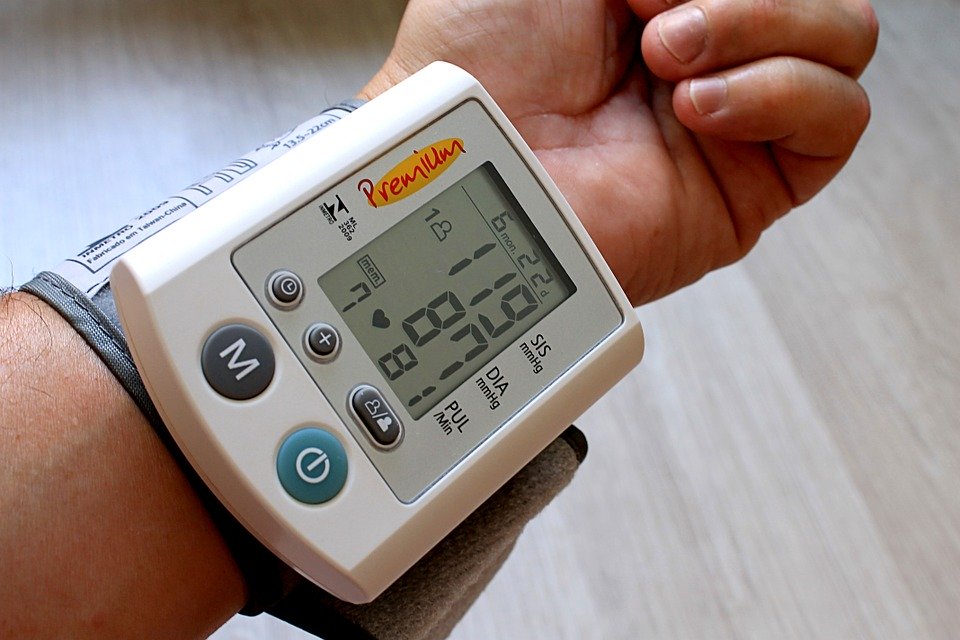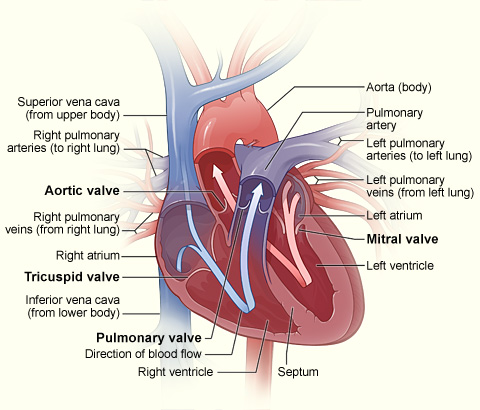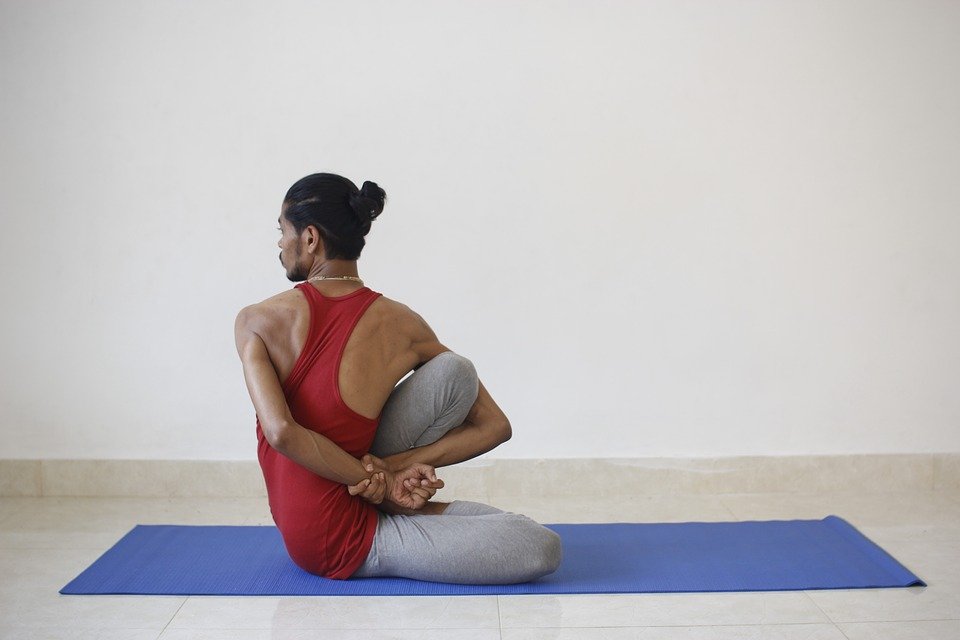Cardiovascular Benefits of Yoga, What You Need to Know
The cardiovascular benefits of yoga have been pointed out in a variety of scientific studies. As is already well known yoga, an ancient Indian mind body technique, has been used over generations as a technique beneficial to mental and emotional balance.
Statistically, an estimated 8.7 million folks practice yoga in the United States with a further 44.4 percent of the American population gladly counting itself among what are known as "aspirational yogis" or people willing to try yoga.
It is fairly recently that a considerable amount of effort has gone into scientific research on the cardiovascular benefits of yoga. Some of the well known physical and emotional health benefits of yoga relate to depression, stress, anxiety, menopausal symptoms, blood pressure, cancer, allergies, asthma, irritable bowel syndrome, migraine, metabolic syndrome, diabetes and cardiovascular diseases (CVD) among a rather long list of other benefits.

A 2014 write-up published in the Indian Heart Journal (2014 Sep; 66(5): 487–489) pointed out that yoga is specifically beneficial to primary and secondary cardiovascular disease prevention.
Hypertension is a part of a cluster of cardiovascular diseases or conditions. Yoga has been shown to have a positive effect on this highly prevalent condition as follows:-
Cardiovascular Benefits of Yoga Include Blood Pressure Lowering
Transcendental Meditation which is a form of meditation technique consistent with yoga was shown in a 2008 study published in the American Journal of Hypertension (2008 Mar;21(3):310-6) to result in the lowering of blood pressure.
According to the study, meditation techniques such as yoga reduce both systolic (top number) and diastolic (bottom number) blood pressure in a clinically significant manner. In the study, systolic and diastolic blood pressure went down by roughly 4.7 mm Hg and 3.2 mm Hg respectively.
These are very meaningful reductions if it is to be believed that other studies have shown that a fall in systolic blood pressure by 3 mm Hg in the generality of the population has a corresponding reduced risk of stroke of 8% and of coronary heart disease of 5%.
The point really is that hypertension science has already shown that even what may initially appear like small blood pressure reductions are in reality beneficial in the complex world of hypertension complications. A small reduction in high blood pressure translates to a huge health benefit by way of reducing the risks associated with cardiovascular diseases.

How exactly cardiovascular benefits of yoga in blood pressure reduction occur seem to point to the effect yoga has on sympathetic activity which when influenced in a certain manner may result in reduced blood pressure.
Another mechanism, scientists say, is the "restoration of baro receptor sensitivity by yoga". Baro receptors are a form of biological sensors used by our bodies to regulate blood pressure. Yoga is said to improve sensitivity of these baro receptors thereby improving blood pressure regulation efficiency.
Not only has yoga been shown to be beneficial to lowering blood pressure. The cardiovascular benefits of yoga extend to help resolve cardiac problems as follows....
Yoga Helps a Lot During Cardiac Rehabilitation
Science has unveiled a further cardiac benefit of yoga. According to a 2014 study in the Indian Heart Journal (2014 Sep-Oct;66(5):490-502), yoga is a useful technique, thanks to its relaxation effect, for cardiac rehabilitation following coronary artery bypass surgery.
The study with these results involved over 1000 participants taken in for coronary artery bypass grafting (CABG). In addition to helping CABG patients recover, yoga also resulted in significant positive changes in Body Mass Index (BMI) among those of the participants put in the yoga group vs the control group. There was also evidence of reduced blood glucose in those who had a higher blood glucose baseline. Yoga was also shown to help prevent recurrence of the coronary artery issue.
Moreover, the additional cardiovascular benefits of yoga include a positive influence on lipid profile...
Yoga Is Good for Your Lipid Profile
Dyslipidemia is a well known problem globally particularly in industrialized societies. It is a term that refers to abnormally elevated fats or cholesterol in the blood (serum) which is also known as the lipid profile. Dyslipidemia is therefore a cardiovascular issue whose risk and complications include coronary heart disease, chest pain and heart attack among other serious and life threatening problems.
Interestingly, yoga was shown in an Indian study to be effective in managing and treating dyslipidemia. The study published in the Indian Heart Journal (2013 Mar; 65(2): 127–131) showed that after 3 months of practicing yoga for 1 hour per day the lipid profile of the yoga group vs control group improved.
In the words of the researchers, yoga resulted in a "decrease in total cholesterol, triglycerides and LDL, with an improvement in HDL". HDL is also refereed to as good cholesterol whose increase is desirable.

The report concluded that yoga did indeed target elevated lipid levels in the individuals who took part in the study. Essential to note, however, is that the group of participants in the study were people with diabetes who also took oral hypoglycemic drugs along with the yoga exercise for the purposes of lowering glucose levels in the blood.
In addition to positively influencing one's lipid profile, you may be surprised to learn that the cardiovascular benefits of yoga also go as far as reducing the effects of age on a person's cardiovascular functions as follows...
Yoga Reduces Age Related Deterioration in Cardiovascular Functions After 40
Apparently, after the age of 40 your cardiovascular functions begin to deteriorate, but there could be a solution. A 2003 study published in the Indian Journal of Physiology and Pharmacology (2003 Apr;47(2):202-6) concluded that yoga could be effective in reducing the inevitable "age related deterioration in cardiovascular functions".
The study had a total of 100 over 40 years people, 50 of which were the control group not involved in any way in any type of physical exercise. The other 50 consisted of people practicing yoga for some 5 years. The researchers paid attention to the pulse rate, systolic and diastolic blood pressure and Valsalva ratio of the 100 participants.
The researchers observed a significant reduction in pulse rate in the yoga group. Furthermore, the yoga group also enjoyed positive effects on both systolic and diastolic blood pressure. In addition, the yoga group had a significantly higher Valsalva ratio vs the control group.
The Valsalva Ratio measures the heart rate response to blood pressure variances that result from the cardiovascular effects of exhalation against a closed airway also known as the Valsalva manoeuvre. A higher ratio is indicative of a positive cardiovascular condition.
In the final analysis, highlighting the cardiovascular benefits of yoga, the researchers concluded by stating that "our results indicate that yoga reduces the age related deterioration in cardiovascular functions".
Apart from the beneficial yoga effect on cardiovascular function, there is also something to gain from yoga concerning heart disease...
Yoga is Beneficial to Patients with Chronic Heart Failure
A 2014 study in the Brazilian journal Arquivos Brasileiros de Cardiologia (2014 Nov; 103(5): 433–439) set out to investigate the potential cardiovascular benefits of yoga in individuals with chronic heart failure (CHF).
The study which itself was a meta-analysis of previous studies discovered that yoga enhanced exercise capacity which is also refereed to as VO2. VO2 stands for maximum oxygen intake during exercise. It is an effective measure of exercise capacity. Exercise is an important aspect of CHF rehabilitation. Its improvement is immensely beneficial to recovering CHF patients. Furthermore, yoga was also shown to improve quality of life in individuals with chronic heart failure.
Following these findings, the researchers recommended that yoga should be included in cardiac rehabilitation programs.
Yoga Improves Respiratory Function in the Elderly
The results of a 2011 study published in the journal BMJ Open (2011 May 24;1(1):e000085) added to known cardiovascular benefits of yoga when it concluded that yoga could be beneficial among the elderly by way of improving the respiratory function.
The study carried out in Brazil was completed by some 29 participants aged about 68 years out of the the initial 76 healthy elderly people. The researchers observed that following yoga practice for 4 months, there was significant increases in maximum expiratory and inspiratory pressures (PE(max) and PI(max). Participants took 2 yoga classes per week in addition to home exercises.
In the final analysis, it is apparent that scientific studies have steadily been accumulating a growing list of cardiovascular benefits of yoga. These health benefits attributed to yoga are bound to also increase the number of people drawn to the practice currently and in the days ahead.
In conclusion, the following is a summary of the known cardiovascular benefits associated with yoga...
- Blood Pressure Lowering
- Cardiac Rehabilitation
- Improving Lipid Profile
- Reduces Age Related Deterioration in Cardiovascular Functions
- Chronic Heart Failure Rehabilitation
- Improvement of Respiratory Function
- Stress reduction
[Last updated: 25 November 2017]

|
Home > Cardiovascular Benefits of Yoga |
Cardio > Yoga and Cardio Benefits |
Disclaimer
Information contained on this website is not meant to replace your doctor's advice.
(c) All Rights Reserved. 2010-2018









